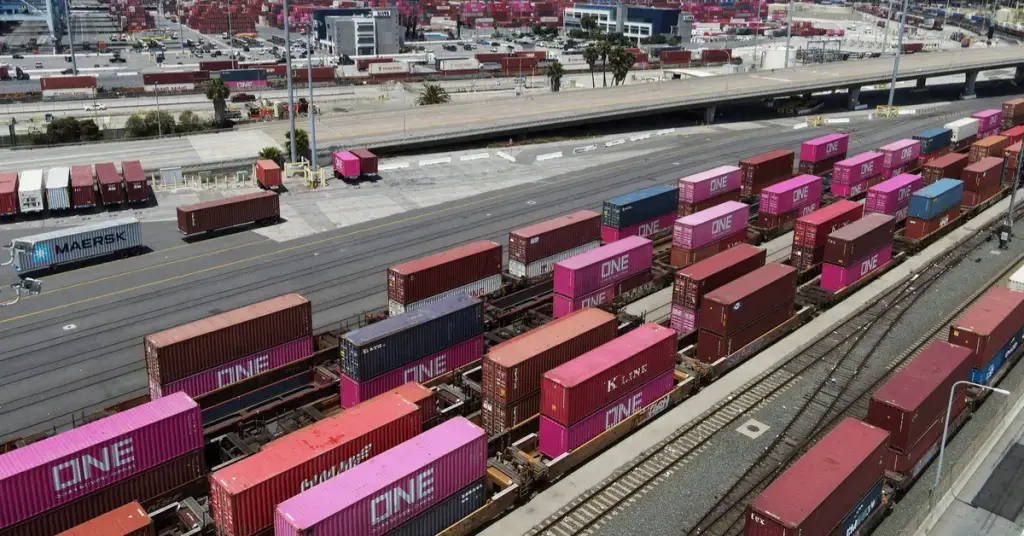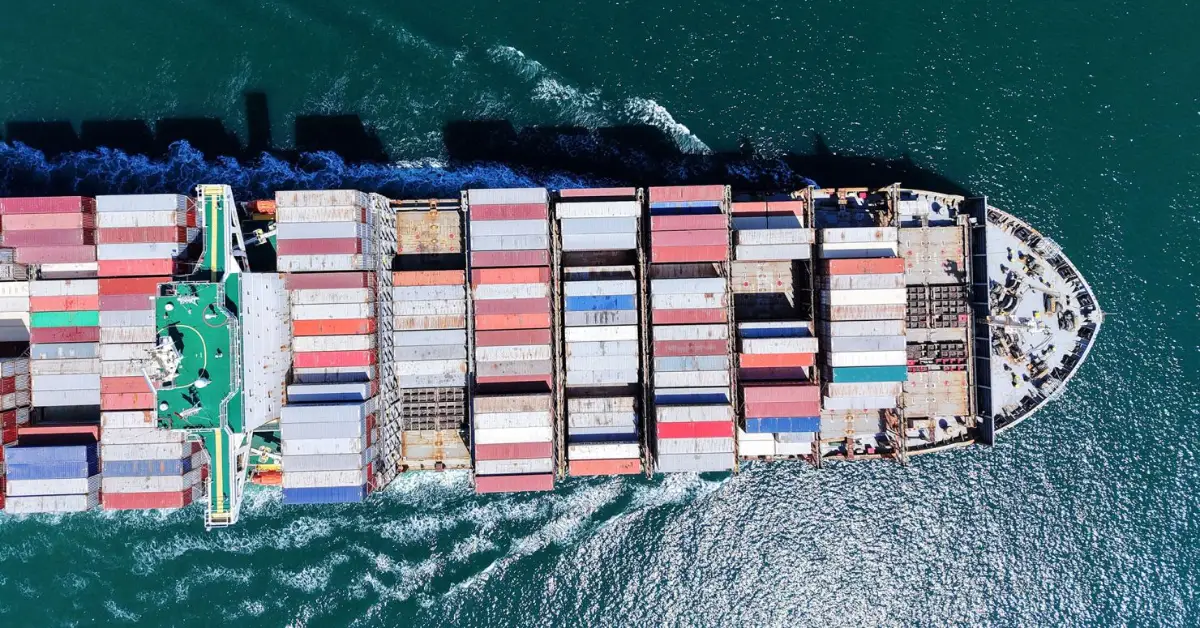American shoppers are on the edge of big changes as President Donald Trump’s trade war with China starts to make a real impact. The first cargo ships carrying Chinese goods under the new 145% tariffs have now docked at US ports, particularly in Los Angeles. These shipments are important because they will directly affect what’s available in stores and how much it costs in the coming weeks.
Imports from China have already seen a major drop. Since Trump’s sharp tariff hike last month, the number of goods coming into the US from China has fallen dramatically. The tariff, which now stands at 145% on most Chinese goods, is making a huge dent in the flow of products that American consumers rely on daily.
Gene Seroka, the executive director of the Port of Los Angeles, explained the current situation in simple terms during an interview with CNN. “This week, we’re down about 35% compared to the same time last year,” Seroka said. “These ships are the first ones being charged the new tariffs that were put in place last month. That’s why cargo volume is looking so light.”
But it gets even more serious. Seroka noted that imports from China have dropped by more than 50% on the ships now arriving. Many US importers are canceling orders because the high tariffs are simply too expensive to handle. For example, an item that used to cost $100 could now cost more than $245 after the tariff is added. For many businesses, that’s not a sustainable price.
The Port of LA had planned for around 80 cargo ships to arrive in May, but 20% of those trips have already been cancelled. And things don’t look much better for June, with 13 sailings already canceled in advance.
“No one really knows how long this is going to last,” Seroka warned. “Retailers are telling me that their product costs have shot up to about two and a half times what they were just a month ago. That’s going to hit consumers hard.”
What Does This Mean for Shoppers?
Get ready for shortages and price hikes. Some retailers are already taking unusual steps to avoid paying these steep tariffs. According to Ryan Petersen, the CEO of Flexport, a logistics and freight forwarding company, some businesses are now choosing to store their goods in Chinese warehouses rather than bring them into the US. This way, they avoid the huge tariff cost, even if it means delaying sales.
But this is only a short-term solution. Petersen explained that if things continue this way, shipments could drop by as much as 60%. That’s a massive decline, and it means shoppers will feel the impact very soon.
“A 60% drop in containers means 60% less stuff arriving in stores,” Petersen told CNN. “Right now, stores are still selling goods that were stocked up earlier, but once that’s gone, shortages will start showing up. And that’s when you’ll see prices rising fast.”
The National Retail Federation also expects imports to fall. It estimates that overall imports into the US during the second half of 2025 will drop by at least 20% compared to last year. For goods coming from China specifically, the decline could be even steeper—JP Morgan predicts a 75% to 80% fall in imports.
For the moment, Americans are still shopping from the stock that was stored up before the tariffs hit. But experts say these supplies won’t last forever.
“If this goes on for a few more weeks, stores will sell through that stockpile, and by summertime, we’ll see shortages and empty shelves,” Petersen warned. Seroka added that while we might not see shelves completely bare, customers will notice fewer choices. “You may still find pants in stores, but maybe not the brand or style you want. And the options you do find will be more expensive.”
Stockpiling Before Tariffs Hit
Earlier this year, many US businesses raced to bring in goods before the tariffs took effect. This rush to stockpile pushed the US trade deficit to a record high of $140.5 billion in March. Companies were trying to load up on products to avoid the big cost hikes they knew were coming.
Daniel Vielhaber, an economist at Nationwide, explained it in a client note. “Businesses spent the first quarter front-loading orders for consumer and capital goods, among other things, ahead of what they called ‘Liberation Day’ on April 2,” Vielhaber said. “Now that the new tariffs are in place, we expect inflation to rise, which is going to be another burden on consumers and could slow down economic growth.”

Although the new tariffs kicked in last month, economists believe a few more shipments loaded before the tariff deadline are on the way and will continue arriving over the next couple of weeks.
Wells Fargo economists put it this way: “Goods will enter the US duty-free if they were loaded at the port of departure before the tariff date and arrive before May 27. This gives businesses a little extra time to bring in products without paying the tariff. But after that, we expect trade to slow down a lot.”
Long-Term Impact on Trade
So, what happens next? Experts say that unless there’s a major change in trade policy, we can expect shortages, higher prices, and less variety in stores throughout the summer. Some retailers are trying to shift their supply chains to other countries to avoid Chinese tariffs, but these changes take time and can’t happen overnight.
This means it’s a good idea for shoppers to buy now if they need specific items, especially those usually imported from China. Prices are likely to climb, and the options available in stores may shrink over the next few months.
Seroka stressed that the long-term impact will depend on how long the trade war drags on. “If things stay the way they are now, we’re looking at a very different shopping experience for American consumers,” he said.
The National Retail Federation is also monitoring the situation closely. They warn that the tariffs could slow down overall consumer spending, especially as people start to feel the pinch of rising prices on everything from clothing to electronics.
Final Thoughts
The arrival of these first Chinese cargo ships under the new 145% tariff marks a major turning point in the US-China trade war. While the effects aren’t fully visible yet, experts warn that it’s only a matter of time before American consumers start to notice the changes.
Retailers are already canceling shipments, store shelves are expected to become less stocked, and prices are on the rise. If you’ve been putting off buying something, now might be the time to act before the full impact of these tariffs hits home.
As always, the situation is still evolving. Both businesses and shoppers will need to stay flexible and keep an eye on the latest updates as the trade war continues to unfold.
Disclaimer: This article has been meticulously fact-checked by our team to ensure accuracy and uphold transparency. We strive to deliver trustworthy and dependable content to our readers.




